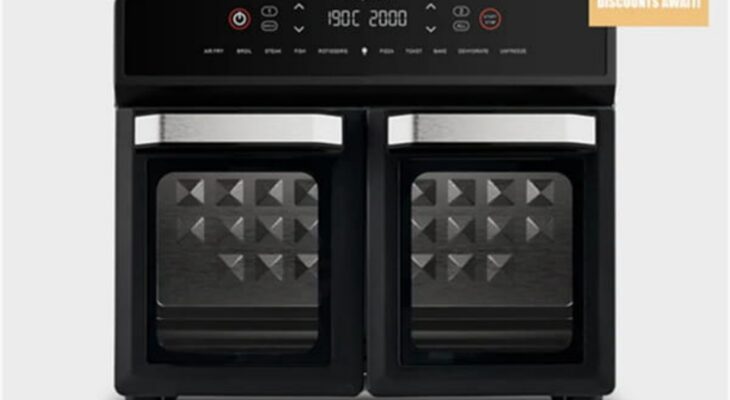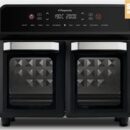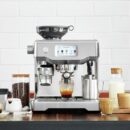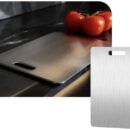
Is the Air Fryer an IQ Tax?
The hype around air fryer is overwhelming; they have become the latest trend in kitchen appliances. However, this brings up an important question: Is the air fryer an IQ tax? In this article, we will delve into this issue, examining the pros and cons of air fryers to determine if they are worth the investment. Let’s take a closer look to see if this trendy gadget is a smart purchase or just another overhyped product.
What is an IQ Tax?
The term “IQ tax” refers to products that are perceived as unnecessary or overhyped, implying that buyers might be paying more due to clever marketing rather than actual value. The idea is that such products appeal to our desire for convenience, novelty, or status, but don’t necessarily deliver on their promises or provide significant benefits over existing alternatives.
Benefits of Air Fryers
1.Healthier Cooking:
One of the biggest selling points of air fryers is their ability to cook food with significantly less oil than traditional frying methods. This can lead to lower calorie intake and reduced fat consumption, which is a big plus for those looking to maintain a healthier diet. Foods come out crispy on the outside and tender on the inside, mimicking the results of deep-frying but with a fraction of the oil.
2.Convenience:
Air fryers are often faster than conventional ovens and require less attention than stovetop cooking. This can be a significant time-saver, especially for busy individuals. The preheating time is minimal, and many dishes can be cooked in 15-20 minutes, making it perfect for quick meals.
3.Versatility:
Many air fryers can roast, bake, and grill in addition to frying. This makes them a versatile addition to the kitchen, capable of handling a variety of foods from vegetables and meats to desserts. Some models even come with additional accessories like baking pans and grill racks, further expanding their functionality.
4.Ease of Use:
Air fryers are generally easy to use with straightforward controls. Most models come with pre-programmed settings for common foods, which takes the guesswork out of cooking. Cleanup is also typically easy, as many parts are dishwasher safe.
Potential Drawbacks of Air Fryers
1.Limited Capacity:

Air fryers often have smaller capacities compared to conventional ovens, which can be a limitation for larger families or those who like to cook in large batches. While there are larger models available, they can be bulkier and more expensive.
2.Counter Space:
Air fryers can take up a considerable amount of counter space, which might be a concern in smaller kitchens. If counter space is at a premium, this could be a significant drawback.
3.Price:
While prices have come down, some high-end models can still be expensive. It’s important to weigh the cost against how much use you anticipate getting out of it. A cheaper model might not offer the same features or durability, leading to dissatisfaction in the long run.
4.Niche Appliance:
For some, the air fryer might end up being a niche appliance that is not used frequently, making it less cost-effective. If you already have appliances like a convection oven or a toaster oven, you might find that the air fryer doesn’t offer enough additional benefits to justify the purchase.
How to Determine if an Air Fryer is an IQ Tax
1.Necessity:
Assess whether the product fulfills a genuine need or solves a real problem. For instance, does the air fryer significantly improve your cooking process or health compared to traditional methods?
2.Value for Money:
Evaluate if the product offers good value for the price. This includes considering the cost of the air fryer against its features, durability, and how often you will use it.
3.Alternatives:
Compare the air fryer with other available options. Are there cheaper or more versatile appliances that can achieve similar results?
4.Marketing Hype vs. Reality:
Scrutinize the claims made by marketers and advertisements. Does the product live up to the promises, or is it mostly driven by hype?
5.User Experience and Reviews:
Look at user reviews and expert opinions to get a sense of real-world performance. Are users generally satisfied, or do they report common issues and disappointments?
By taking a rational and comprehensive approach to evaluating the air fryer, we can determine if it truly adds value to our kitchen or if it’s just another example of a product that capitalizes on consumer trends and clever marketing.
Comprehensive Analysis
The verdict on whether an air fryer is an “IQ tax” isn’t black and white; it largely depends on individual circumstances and needs. For those who prioritize quick, easy, and healthier meal options, an air fryer can be a valuable addition to the kitchen, offering convenience and versatility. However, if counter space is limited or if you already own similar appliances, the investment might not be justified.
Ultimately, whether an air fryer qualifies as an “IQ tax” is subjective. It’s crucial to weigh the benefits against the potential drawbacks and consider how well the appliance fits into your lifestyle and cooking habits. By taking a rational and comprehensive approach, you can make an informed decision about whether an air fryer is a worthwhile investment for you.












